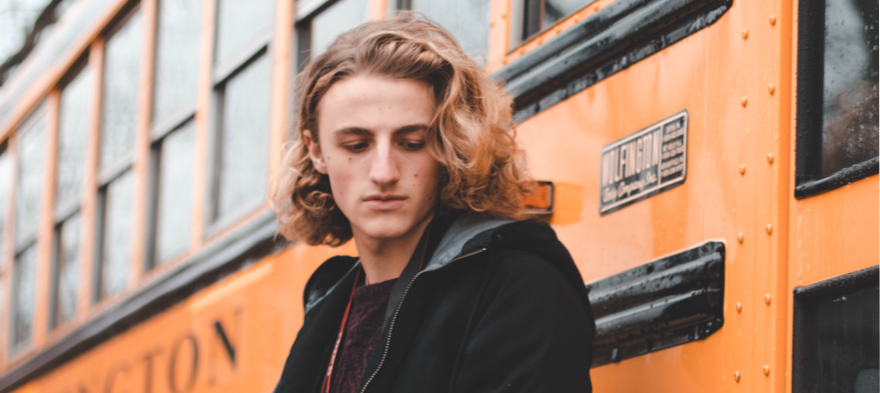
Jun 18, 2019 12:00:00 AM
On a rainy day in May of 2018, I toured a public school in northern Pennsylvania. Most of the students were eligible for free lunch. The ceiling tiles were falling in, and water was running down the side of a wall.
When I asked the superintendent where most of the students go after high school, he paused. Then he explained that most of the students do what their parents did, which is eventually find their way on to public assistance. When I asked why his graduates do not go on to higher education or technical training, he told me there was nowhere for them to work here. If they did further their education, they didn’t come home. Ever.
Why would they? Why would they return to a rural area with few jobs and little capital for starting new businesses?
Rural America is often the neglected child of education. Students live in dirt floor houses, attend schools in unheated trailers, access very few job opportunities and rarely get out of the area enough to learn about people different from themselves.
In rural America, isolation is an epidemic. Due to the distances involved, many rural students do not go on field trips. They are never exposed to people who speak a different language or are from a different cultural background. They lack access to adequate libraries. No one brings in phenomenal guest speakers. Most have probably never seen a university campus in their lives.
And that [pullquote position="right"]isolation breeds stagnation. It breeds a lack of understanding. It breeds a cycle of poverty that is hardly acknowledged because it is truly far away from everyone.[/pullquote] Their sheer distance from exposure to opportunities makes changing perspectives quite difficult.
Their teachers are trying, but limited resources and opportunities limit many students’ thinking. Many of them do not see the value in their school work, nor do they have a quiet place to work on it, really understand it and learn to do something with it.
When students are constantly worried about survival, being warm in the winter, having food, and most of all, money, thinking about school becomes secondary. Being able to ponder academic subjects and concepts is a luxury reserved for those who have time, and whose needs are taken care of.
There is another level to the issue of rural poverty and education, however, and it is fear. Fear of the unknown—especially the very different sorts of people rural students will encounter should they pursue higher education. The issue is larger than the lack of money. It is about a change from every single thing most rural students have ever known.
Students from a rural background who move up the ladder of economic stability are plunging into a world of completely different values and social norms. As J.D. Vance said in his memoir, “Hillbilly Elegy,” “When you go from working-class to professional-class, almost everything about your old life becomes unfashionable at best or unhealthy at worst.”
Horace Mann famously said, “Education is the great equalizer of men.” Is it? When rural schools are farther away and cannot bring in the best opportunities, is education an equalizer? When standards for reaching academic success in rural schools have to be different than in suburban upper-middle-class America due to resources, are people receiving an equal education? Most importantly, when students are faced with leaving everything they have ever known to achieve upward social mobility, can education be an equalizer?
Teachers have to bring the world to rural students. We, as teachers, can show them that the world outside their communities is nothing to be afraid of. Students learn through getting to know teachers from outside their communities, who can share different experiences with them.
Many teachers do not opt to work and live in rural communities because they are so isolated. But [pullquote]when we teach far away from where we are comfortable, we are expanding not only our own worlds, but the worlds of our students.[/pullquote] We can help break the cycle of isolation rural students face.
Jennifer R. Wahl has taught at Loyalsock Township High School since 2006 and the Pennsylvania College of Technology since 2015. She holds a bachelor’s degree from Cabrini University in history and a master’s degree in Educational Leadership from the Pennsylvania State University. At the high school and college level, she teaches history, psychology and sociology. Jennifer is the 2018 Pennsylvania State Teacher of the Year.
Few issues in education spark more tension and debate than standardized testing. Are they a tool for equity or a burden on students? A necessary check on school systems or a flawed measure of...
Charter schools are public schools with a purpose. Operating independently from traditional school districts, they're tuition-free, open to all students, and publicly funded—but with more flexibility...
Despite the benefits of a diverse teaching force, prospective teachers of color fall out of our leaky preparation pipeline at every stage: preparation, hiring, induction, and retention. Here’s what...
Ed Post is the flagship website platform of brightbeam, a 501(c3) network of education activists and influencers demanding a better education and a brighter future for every child.
© 2020-2025 brightbeam. All rights reserved.
Leave a Comment